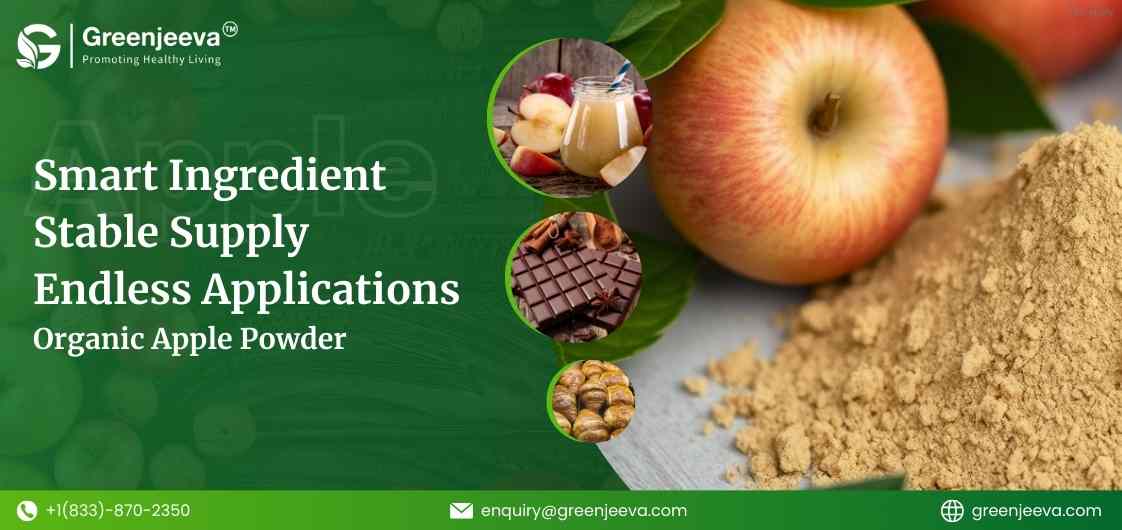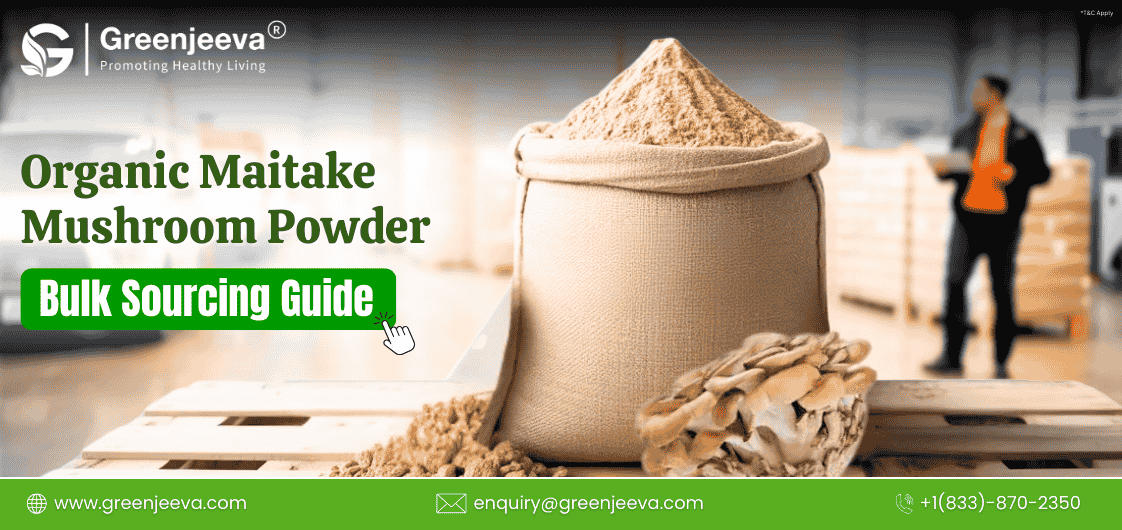The Adaptability of Organic Apple Powder: A Fresh Take on Apple’s Role in Kitchens and Daily Routines

There’s something comforting about the crisp bite of an apple. It’s more than just the flavor — it’s nostalgia, tradition, and a shared cultural experience. Whether it’s childhood memories of apple-picking trips, the scent of apple pie wafting from the oven, or a simple snack tucked into a lunchbox, apples are deeply embedded in our lives. Organic apple powder captures this timeless fruit in a shelf-stable, easy-to-use form, allowing it to transcend seasons and become a staple ingredient for both home and professional kitchens.
This powder isn’t just about convenience. It’s about preserving the essence of apples — the aroma, the texture, the subtly sweet tartness in a form that can be stirred, blended, or sprinkled into nearly anything. For chefs, nutrition-conscious individuals, and food manufacturers alike, the versatility of organic apple fruit powder opens up endless possibilities. From bulk applications in food production to single servings in personal recipes, it adapts effortlessly. In today’s fast-paced food culture, the ability to have consistent, high-quality apple flavor without peeling, chopping, or coring is a game changer.
What Is Organic Apple Powder and How Is It Made?
Apple powder begins with the most essential component: real, fresh apples. Typically sourced from organically cultivated orchards, these apples are harvested at peak ripeness. After careful washing and slicing, the apples undergo low-temperature dehydration a method that helps preserve their flavor profile and retain their natural properties without the use of preservatives or synthetic additives.
The dried apple slices are then finely milled into a soft, powdery texture. Because the process avoids high heat and retains much of the fruit’s integrity, the resulting powder maintains the distinct tart-sweet profile of fresh apples. Most importantly for today’s consumers, organic apple powder is typically free from common allergens and adheres to widely accepted food certifications. Depending on the supplier, it may be Halal, gluten-free, dairy-free, and non-GMO, ensuring that it meets a broad range of dietary needs.
Used in everything from culinary applications to drink blends and dry seasoning mixes, the dehydrated format also provides shelf stability. That means longer storage without spoilage, reduced waste, and convenience all while retaining the charm of the original fruit.
Transforming Everyday Recipes with Organic Apple Powder
Imagine you're baking a batch of muffins on a busy weekday. Instead of peeling and chopping apples, you scoop a spoonful of organic apple powder into the batter no prep, no mess, just the flavor. This is where apple powder truly shines. Its ease of use combined with a natural fruit taste makes it perfect for both sweet and savory recipes.
Apple powder integrates effortlessly into breakfast staples like pancakes, oatmeal, granola bars, or smoothies. It can enrich baked goods, add dimension to sauces, or bring a subtle sweetness to plant-based recipes. Its solubility means it mixes well with both dry and wet ingredients, ideal for large-scale food production and commercial kitchens where efficiency is critical.
Even in foodservice environments, where consistency is everything, apple powder provides a reliable way to maintain flavor standards. Its concentrated form means you can use smaller quantities to achieve the same impact making it a cost-effective solution for caterers and manufacturers alike.
From a practical standpoint, it's also about minimizing variability. Apples vary in size, flavor, and moisture. Powdered apples standardize the output, ensuring every batch of cookies, energy bites, or beverage tastes just right every time.
Modern Holiday Dishes Reimagined with Green Apple Powder
There’s a new secret weapon emerging in modern kitchens: green apple powder. Unlike its red apple counterpart, green apple powder offers a sharper tang and a zesty undertone that enhances both traditional and modern recipes. It’s not just about sweetness it’s about balance, complexity, and unexpected flavor notes.
Chefs have begun incorporating green apple powder into non-traditional holiday dishes think roasted vegetables glazed with a hint of apple, savory sauces for meat alternatives, or even infused into BBQ rubs for an added zing. The tart notes bring out the richness in umami-heavy recipes and pair surprisingly well with herbs like rosemary, thyme, or cumin.
Even in desserts, this powder has a place. From refreshing sorbets to spiced apple granola, it brings brightness that offsets heavier ingredients. Used in vinaigrettes, it cuts through oil and cream, making salad dressings feel lighter and more refined. Its fine texture makes it easy to whisk, blend, or stir into any mixture without clumping or overpowering the dish.
This flexible ingredient is redefining how apples are perceived in holiday cooking no longer just reserved for pies and crumbles, but as a powerful culinary tool in savory and plant-based innovation.
Also read: Organic apple powder
Incorporating Apple Powder into Everyday Routines
Beyond the kitchen, apple powder is making its way into wellness routines for its portability and ease of use. It’s perfect for people on the move, offering a quick way to boost flavor and incorporate natural ingredients into a fast-paced lifestyle. A scoop in the morning smoothie, a dash in yogurt, or even a mix-in with overnight oats can subtly transform a mundane snack into something layered and interesting.
Because of its low moisture content and fine grind, it blends smoothly into liquids. That makes it ideal for wellness-focused consumers who want convenient options that don’t compromise on quality. Many even use it in DIY formulations like homemade snack bars, functional beverages, or energy balls.
Its compatibility with other natural powders like beetroot, spirulina, or even turmeric alternatives makes it a favorite among food formulators. It’s particularly popular in blends meant for travel, individual meal kits, or personal-use sachets, which cater to the growing demand for minimalist, clean-label nutrition on-the-go.
Even with evolving dietary trends, apple powder manages to stay relevant due to its broad appeal, familiar taste, and ability to adapt to changing consumption habits. It’s not a passing trend it’s a staple, reimagined for the modern world.
Best Practices: Storing and Using Apple Powder Effectively
When working with organic apple powder, proper storage is essential to preserving its aroma and flavor. Keep it in a cool, dry place ideally in a pantry or cupboard that isn’t exposed to direct sunlight. Airtight containers help prevent clumping and protect against moisture intrusion, which can affect quality over time.
If stored correctly, apple powder can remain fresh for up to 12 months. For manufacturers and food businesses, this shelf stability supports efficient supply chain management and reduces ingredient waste key factors in food sustainability.
When first experimenting with apple powder, a good rule of thumb is to start small. For beverages, one teaspoon per serving offers a balanced flavor. For baking, one tablespoon per recipe provides enough presence without being overpowering. Over time, as you become familiar with its properties, you can scale up to suit your preferences or formulation needs.
From savory marinades to sweet confections, its versatility makes it an easy favorite. And when used mindfully, it not only elevates the sensory experience of a dish but also simplifies the entire preparation process a win for both chefs and consumers.
**The Food and Drug Administration has not evaluated these statements. This product is not intended to diagnose, treat, cure, or prevent any disease. **






